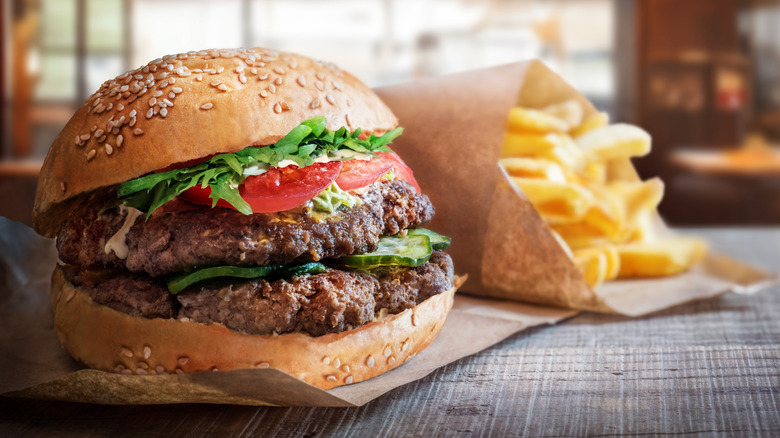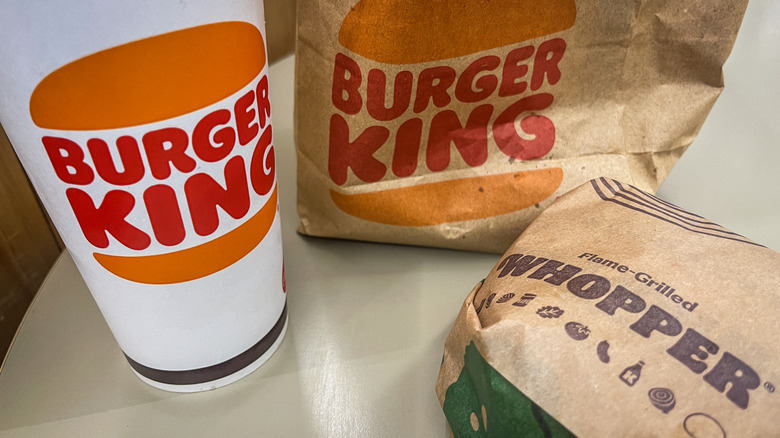The Horse Meat Scandal That Once Plagued The Fast Food Industry
Many Europeans, particularly the French, eat horse meat. However, the practice has long been taboo in certain places, including the United States and the United Kingdom. Bible scriptures prohibit eating the animal, as does Jewish law, while the animal is primarily affiliated with companionship. Needless to say, the fast food industry was shaken when horse meat was discovered in Burger King's patties in Britain and Ireland.
In 2013, Burger King confirmed that it found horse meat in some of its burgers. The contamination happened as part of a broader scandal involving pork and horse meat in all-beef burgers in the United Kingdom, which affected products sold in grocery stores and supermarkets, including Aldi frozen beef lasagna and spaghetti bolognese. The supplier at fault, Silvercrest, had previously assured the fast food restaurant that its burgers weren't affected. While Burger King's independent DNA testing was initially negative for horse, some samples tested positive after a few weeks. The restaurant chain subsequently terminated its relationship with the supplier.
Concealing horse meat in products like ground meat and sausage is easy because it looks like beef. What's more interesting, though, is that horse meat is only partially banned in the United States. Laws are in place to prevent killing and transporting horses for food, yet you're not technically banned from consuming it.
More fast food controversies
Horse meat in its burgers isn't the only fast food scandal involving Burger King. In 2015, the chain's Halloween Whopper featured a black bun that could turn your stool bright green. The bun color was achieved with a combination of artificial dyes. Although your gut can absorb most food colorings, excess dyes can result in colorful bowel movements. Ultimately, the Halloween Whopper seemed to be more of a trick than a treat that many customers didn't appreciate.
Burger King isn't the only major fast-food chain that has found itself in controversy. In 1992, a customer sued McDonald's after suffering third-degree burns on her legs from a coffee spill. The case was widely publicized, gaining attention as the infamous McDonald's coffee story. It was found that the chain had previously received over 700 injury reports regarding its coffee, which was heated to between 180 and 190 degrees Fahrenheit — temperatures that can cause third-degree burns within seconds. It was ordered to pay punitive damages and has since reduced its coffee temperature.
However, not all restaurants accused of wrongdoing are actually guilty. In 2011, the quality of Taco Bell's beef filling was called into question in an extensively publicized lawsuit. The plaintiffs claimed that the beef filling only contained 35% meat, so it couldn't be called beef based on USDA standards. The case was dropped after Taco Bell proved that its product is 88% beef. Unfortunately, the accusations were louder than the verdict, plaguing the chain for years.

